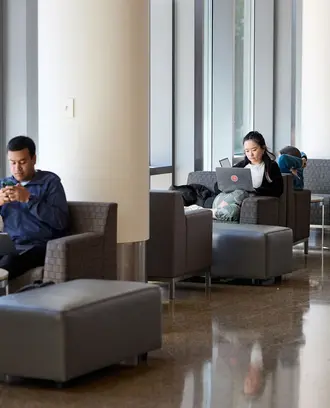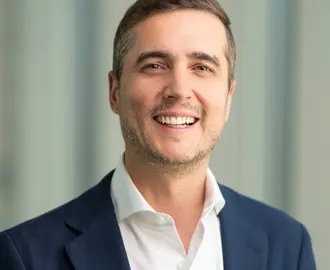If you ask Rocio Fonseca, SF ’14 , how she is tackling the present crisis, don’t be surprised if she retorts, “Which one?” Before the onset of the COVID-19 pandemic, Fonseca, Chief Innovation Officer of the Chilean Economic Development Agency (CORFO), was navigating three other nationwide challenges—severe economic inequality, social unrest, and the climate crisis. The stakes on each are high. Chile must rapidly innovate its way out of 200 years of institutional siloing or face even more serious economic, social, and public health and safety consequences.
“Leadership must be collaborative to tackle all these crises simultaneously,” says Fonseca. “No individual could master even one of these challenges during normal times and certainly not during a pandemic. That’s why we’ve tried to reduce each of these problems to its component parts and created multidisciplinary teams to address specific aspects of each. This approach allows us to work in parallel and greatly accelerate our activities.”Building trust across multiple generations
Fonseca says that a big part of her job at present is helping people in small- and mid-sized enterprises (SMEs) understand the need for innovation. “A majority of Chilean SMEs believe that technological innovation is just for large corporations,” she says. “To make inroads, we must win the trust of multiple generations in family businesses and modest enterprises. And that requires a lot of personal engagement.”
CORFO is a public agency, and Fonseca is required to meet annual targets for her outreach efforts. “Before the pandemic, our typical in-person business roundtable or training course included approximately 50 enterprises, and our goal for the year was to connect with 800 companies,” she explains. “When the lockdown began, my boss offered to lower that requirement. Instead, we expanded our use of existing technologies and began connecting with regions of the country we’d never reached before. By the end of June, we’d engaged with more than 5,000 enterprises.”
The energizing effect of a positive vision
CORFO’s programs for SMEs are very practical and highly relevant to surviving the pandemic—creating an online presence, generating new sources of income, and reducing costs. “Once we establish a relationship,” says Fonseca, “we have the opportunity to impart a positive, longer-term vision for Chilean society. For many, it’s the first time they’ve ever heard about the circular economy or how greening their businesses will add overall value to the GDP.”
Fonseca’s annual budget includes roughly USD$60 million in grants to help SMEs go green and adopt innovative technologies. “Beyond the money, though, people are inspired by the fact that invention is a way of capitalizing on all our strengths and promoting the very best our country has to offer. They’re beginning to see these multiple crises in a new light—this is the biggest opportunity for transformation in Chilean history.”



